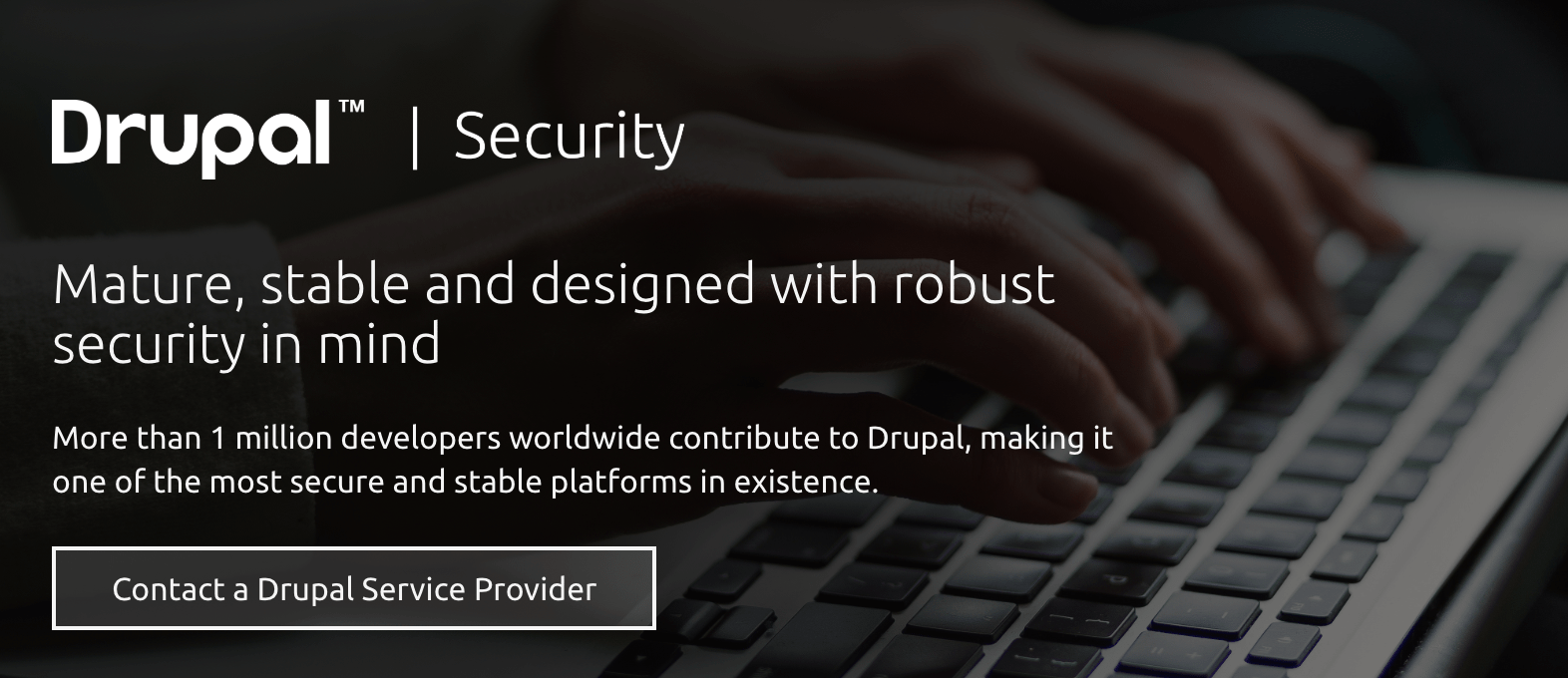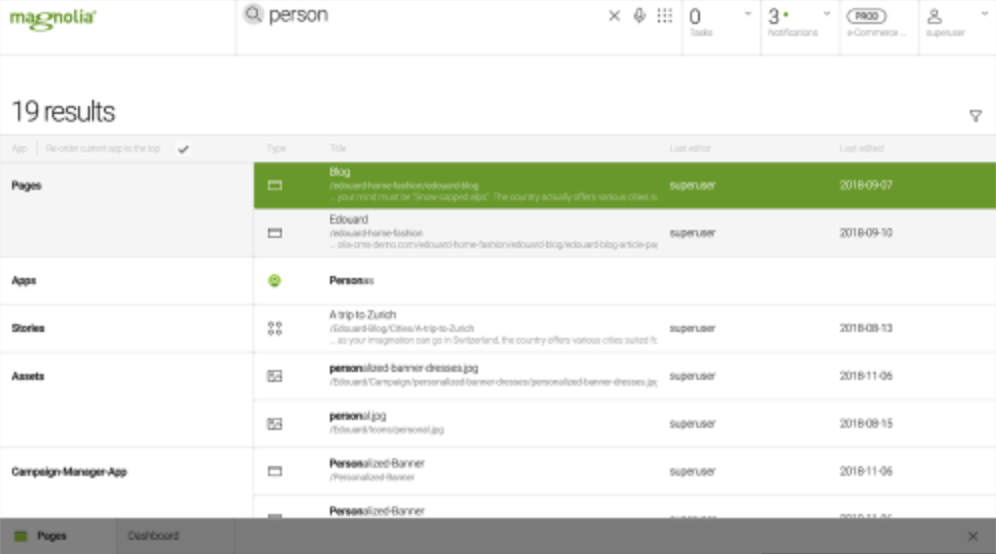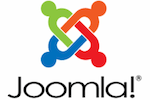Want to jump straight to the answer? The best content management systems for most people are definitely WordPress or Wix.
Content management systems (CMS) make it possible to manage and publish content on the web.
Traditionally, web pages are written in HTML, JavaScript, and CSS programming languages. Without a content management system, you’d need to learn how to code in order to build a website and publish content online.
But most CMS platforms enable users to create a website without writing code.
There are plenty of content management systems on the market that are geared towards people of varying technical skill levels. These solutions are not all created equally. If you’re not very tech-savvy and choose the wrong CMS, you’ll struggle to create and manage content on your website. On the flip side, experienced developers may want a CMS with more flexibility.
Regardless of your technical skill level or web-building experience, you can use this guide to find the best CMS software for you.
The Top 10 Best Content Management Systems
- WordPress
- Wix
- Squarespace
- Shopify
- BigCommerce
- Joomla!
- Drupal
- Magento
- Adobe Experience Management Sites
- Magnolia CMS
I’ve been managing web content for more than a decade. After extensive research and first-hand experience using every CMS under the sun, I’ve narrowed down the top ten content management systems for various use cases.
#1 – WordPress— Best Overall Content Management System
• Free CMS platform
• 55,000+ plugins
• Fully customizable
• Perfect for content-heavy sites
• Start for free
More than one-third of the entire Internet is powered by WordPress. This platform is the most popular content management system in the world. It’s trusted by 60+ million people across the globe.
For beginners and experienced users alike, WordPress has all of the tools you need to create, edit, manage, and publish content on the web.
As a free and open source CMS, WordPress can be customized to meet the needs of any type of website. Just browse from 55,000+ plugins to add functionality to your site.

There are actually two different versions of WordPress—WordPress.com and WordPress.org.
With WordPress.com, you can set up a website for free using a WordPress subdomain. This isn’t ideal for the vast majority of users, and it’s definitely not suitable for businesses. But you won’t have to worry about hosting, and it’s fine for those of you who want to get your feet wet with the platform.
WordPress.org is what you want. In fact, we use WordPress to manage our content here at Quick Sprout. You’ll need to get your web hosting service elsewhere, but that process is very straightforward.
The platform is SEO-friendly, secure, and responsive. It’s a perfect choice for content-heavy websites, like blogs.
There is definitely a slight learning curve, and it’s not necessarily as user-friendly as a traditional website builder. But even beginners can figure out WordPress pretty quickly. Advanced users will enjoy the flexibility to edit and customize with coding.
#2 – Wix — Best Website Builder For Beginners
• Drag-and-drop website builder
• Perfect for beginners
• Starts at $13 per month
• 14 day money-back guarantee
• Start for free
Wix is branded as a website builder. It’s not quite the same as a traditional CMS system, but it does have components and applications that function for content management.
For beginners that want an all-in-one solution for creating a website from scratch, Wix will be a top choice to consider. With Wix, you can create a website, edit your content, and publish everything on the web without writing a single line of code.
Even if you don’t have any design or development skills, you can build a Wix website in minutes.
Similar to WordPress, you can actually build a Wix website for free. Unfortunately, the free site does have a Wix subdomain. You’ll need to upgrade to a paid plan to remove the Wix branding and get the most out of your website.
- Combo — $13 per month
- Unlimited — $17 per month
- Pro — $22 per month
- VIP — $39 per month
Wix has an intuitive drag-and-drop site builder, so it’s easy to edit content on your landing pages. You can use Wix to publish a blog, run an ecommerce site, and essentially publish any type of content you want on the web.
While Wix is definitely the best website builder on the market today, it’s a bit limited compared to a pure CMS system, like WordPress. But with that said, it’s an excellent choice for beginners. Try Wix for free.
#3 – Squarespace — Best CMS For Beautiful Designs
• Starts at $12
• Ideal for visual content
• Award-winning designs
• 14 day free trial
• Get started for free
Squarespace is another website builder that’s perfect for beginners or anyone who doesn’t want to code from scratch. The platform is known for its beautiful designs, making it a top choice for people creative professionals.
Photographers, musicians, designers, artists, and anyone with a creative portfolio are all viable candidates for this CMS platform.
But with that said, Squarespace has the flexibility to meet the needs of other sites too, including restaurants, online stores, professional services, and more.
Squarespace does have tools for blogging as well. With that said, I wouldn’t necessarily recommend this platform if a blog will be your site’s primary function. Squarespace is definitely better for managing visual content as opposed to text-heavy pages.
Here’s a quick overview of the plans and pricing for Squarespace CMS:
- Personal — $12 per month
- Business — $18 per month
- Basic Commerce — $26 per month
- Advanced Commerce — $40 per month
The rates above are all based on an annual contract. Month-to-month plans are available at a higher starting price point.
If you want to monetize a portfolio website, Squarespace has built-in selling capabilities with its Commerce plans. So you don’t have to worry about installing a third-party tool or plugin like you would with WordPress or another CMS.
#4 – Shopify — Best Content Management System For Ecommerce
• Ecommerce website builder
• Starts at $29
• No Coding Required
• 14 day free trial
• Start for free
Shopify is the best CMS platform for ecommerce sites. It’s an all-in-one website builder and content management system with built-in payment processing for selling online.
In addition to its CMS, the software has other tools for things like building a brand, selling on social media, selling via online marketplaces, and processing in-person sales with Shopify POS.
The platform is easy for anyone to use and doesn’t require any coding or development skills. If you know how to navigate the web, you can build and manage ecommerce content with Shopify.
Shopify makes it easy for you to manage every aspect of your products. Set variants, allow inventory tracking, adjust pricing, add weights, change the order of your products, and more.
The CMS interface is clean and uncluttered. In addition to managing products, you’ll also have the ability to create, edit, and manage a blog, landing pages, and other elements of your navigation.
Here’s a quick look at the pricing for Shopify:
- Basic — $29 per month
- Shopify — $79 per month
- Advanced — $299 per month
#5 – BigCommerce — Best CMS For Large Ecommerce Stores
• Enterprise-grade CMS
• B2B and wholesale support
• Starts at $29.95
• 15 day free trial
• Get 3 months free
BigCommerce is an ecommerce CMS that’s built to scale. Similar to Shopify, it’s an all-in-one website builder and CMS designed specifically for ecommerce websites.
This enterprise-grade CMS allows you to manage thousands of products and other content with ease.
BigCommerce has use-case specific solutions for B2Bs, wholesale ecommerce shops, cross-channel commerce, and international selling as well.
Like Shopify, you can manage your ecommerce content on BigCommerce without any development experience.
Here’s a look at the BigCommerce plans and pricing:
- Standard — $29.95 per month
- Plus — $79.95 per month
- Pro — $299.95 per month
- Enterprise — Custom pricing
Save 10% on Plus and Pro plans with an annual subscription. Try BigCommerce free for 15 days. For a limited time, BigCommerce is offering three months free after the trial ends.
#6 – Joomla! — Best WordPress Alternative CMS
• Free and open source
• Highly customizable
• Use multiple themes at once
• Multilingual support
• Start for free
Joomla isn’t quite as popular as WordPress, but the two platforms are extremely similar and always being compared to each other.
Like WordPress, Joomla is a free and open source platform. It has a stronger learning curve than WordPress, but it’s ideal for creating highly customizable content. If your website isn’t super text-heavy, Joomla might be a better option for you to consider.
Joomla has excellent tools for managing users, which makes it a popular choice for membership-type sites.

Another top feature of Joomla is the ability to use multiple themes and templates simultaneously for different pages and types of content. You’ll also benefit from multilingual support out of the box.
If you’re not happy with WordPress, but you like that style for content management, try Joomla instead.
Just be aware that Joomla doesn’t have as many extensions or add-ons as WordPress. There are certain features you might have to implement manually. This isn’t necessarily a deal-breaker, but it’s probably better for people who have some development experience.
#7 – Drupal — Best CMS For Security
• Manage custom post types
• Control user permissions
• Robust security
• Automatic updates
• Start for free
Drupal is another free and open source CMS. It’s not quite as popular as WordPress and Joomla in terms of market share, but that doesn’t take away from its performance.
Overall, Joomla excels in the same areas as Joomla. For example, you’ll have total flexibility to create and manage custom post types. You’ll also benefit from a high level of control over users and permissions. Like Joomla, Drupal is also multilingual out of the box.
But in terms of security, Drupal is in a class of its own.

Some of the top security features include database encryption, user access control, DoS attack prevention, automatic updates and core validation, GitHub partnership, information sharing security reports, and prevention of malicious data entry.
That’s why Drupal is trusted by banks, government organizations, healthcare facilities, and other websites that require robust security and scalability.
Drupal has use-case specific solutions for developers, marketers, and agencies.
With that said, I’d only recommend Drupal to users who are comfortable with coding and development. There is definitely a learning curve, and it’s not for beginners.
#8 – Magento — Best CMS For Advanced Ecommerce Users
• Open source technology
• Create ecommerce PWA
• Trusted by 250,000+ users
• Highly customizable
• Request free demo
Magento is unique compared to the other ecommerce CMS platforms on our list. That’s because it’s built using open source technology—similar to WordPress, Drupal, and Joomla.
More than 250,000 developers and advanced users across the globe trust Magento for managing highly customizable ecommerce content.
This software is not for beginners. It’s mostly used by mid-market and enterprise businesses and B2B organizations that need complete customization at scale.
Another highlight of Magento is the ability to create a PWA (progressive web app) for your online store.

Pricing for Magento is not available online. You’ll need to contact the sales team to get a quote and request a free demo.
With that said, it’s usually expensive. The enterprise-grade solution costs over $20,000 per year.
#9 – Adobe Experience Manager Sites — Best AI Powered CMS
• Hybrid CMS
• Build to scale
• Cloud-native foundation
• Manage cross-channel content
• Get a free quote
Adobe Experience Manager Sites is unique compared to the rest of our list. It’s a flexible hybrid CMS that adapts to different channels.
This platform helps you deliver content with speed and at scale, using a cloud-native foundation and artificial intelligence.

Benefits of Adobe Content Manager Sites include:
- Web content management
- Developer-facing tools
- Cross-channel content management
- Personalized experiences
- Scalability with machine learning
- API delivery
For those of you looking to create a highly responsive customer experience, consider using Adobe Content Manager Sites.
#10 – Magnolia CMS — Best Omnichannel Content Hub
• Dynamic content pools
• Developer friendly
• Leverage machine learning
• 30 day free trial
• Try for free
Magnolia CMS has 15+ years of experience in enterprise content management. This headless content management platform specializes in creating omnichannel experiences.
The software is a popular choice for marketers. It’s flexible, feature-rich, and has a modern UI.
With Magnolia, you can use AI to instantly find your content from any connected application. The software learns your behavior to provide real-time suggestions.

Additional benefits include:
- Dynamic content pools
- Global AI content search
- Smart tagging for centralized taxonomy
- Automated assembly
- Content planning tools
- Omnichannel delivery
Magnolia supports traditional web pages, interactive apps, digital signage, web-to-print, and any digital touchpoint for content management. The software includes capabilities for campaign management, DX architecture, and personalization.
Contact the sales team for custom pricing. Request a demo and try Magnolia free for 30 days.
How to Find the Best Content Management System For You
With so many options to choose from, finding the best CMS software for your unique needs can feel overwhelming.
There are certain factors that must be taken into consideration when you’re evaluating content management systems. This is the methodology that I used to narrow down the choices in this guide. I’ll explain what matters the most so you can find the best solution.
Website Type
What type of website are you building?
Some platforms are better for text-heavy sites, like blogs. Other CMS systems are built specifically for ecommerce websites. There are even options for things like managing custom post types, portfolios, or visual content.
Technical Skill Level
You don’t need to be a developer or have coding skills to create and manage website content in today’s day and age. There are plenty of beginner-friendly CMS systems out there.
Beginners should lean towards all-in-one CMS solutions and website builders. These will be the easiest to manage. Advanced users and developers typically choose open source software, as this will give them the most flexibility.
Customization
While website builders might be easy to use, there will always be some limitations.
For the vast majority of people, that won’t be a problem. But if you’re looking for true customization, you’ll need an open source CMS platform.
With that said, not every open source CMS requires tons of technical skill level. You can always take advantage of plugins or add-ons to add functionality to your website. If you’re not technically inclined, make sure the platform you’re using has an extensive marketplace for plugins. Otherwise, you’ll have to build solutions on your own or hire a developer to build them for you.
Support
CMS software like Wix, Squarespace, Shopify, and other all-in-one solutions come with support directly from the platform.
But if you’re using an open source software, like WordPress or Drupal, you’ll need to rely on knowledge base articles, tutorials, and advice from the developer community. Fortunately, since WordPress is so popular, there’s no shortage of online learning tools and self-help articles on the web. But those aren’t as readily available for less popular open source CMS software.
Price
No CMS is truly free. Even a “free and open source” solution requires you to pay for hosting, domain registration, and more. You’ll likely have to pay for some premium plugins and extensions as well to add functionality to your site.
Make sure you assess these costs ahead of time. Understand how much it costs to add certain features to your CMS down the road, whether it be next month or next year.
Conclusion
What’s the best CMS on the market today? WordPress is our top overall recommendation. It’s the most popular content management system in the world, and we use it here at Quick Sprout.
With that said, there are plenty of other great alternatives to consider.
If you’re building an ecommerce website, check out Shopify, BigCommerce, or Magento. For beginners looking for an all-in-one website builder with no coding required, consider Wix or Squarespace. Developers and advanced users would benefit from Joomla, Drupal, Adobe Experience Manager Sites, or Magnolia CMS.
Regardless of your technical skill level and needs, you can find the best CMS software for your unique scenario by using this guide.
from Quick Sprout https://ift.tt/3fBcLfs














No comments:
Post a Comment